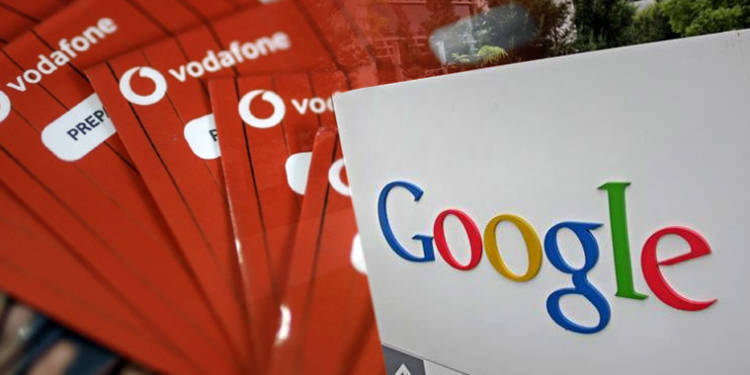India is fast becoming a battleground for big tech companies like Microsoft, Google and Facebook to capitalise upon the biggest open market of internet users. These big tech giants are now joining hands with Indian telecom players to expand their presence in the Indian market and make the most of this booming market- half a billion users came online in the past one decade, and it is set to grow even further with just as many still living offline.
Last month, tech giant Facebook struck a deal with the leading telecom player in India, Reliance Jio. Facebook bought 9.99 share in the Jio platforms and the telecom player has been booming ever since with American equity firms getting bullish on Jio. In this backdrop, Google is now considering a deal with troubled telecom player Vodafone Idea. It is planning to buy 5 per cent stake in the telecom player which has been in a bad shape since the Supreme Court’s Adjusted Gross Revenue (AGR) ruling.
Facebook’s 5.7 billion dollars investment in the digital arm of Reliance Industries Limited (RIL), the Jio platforms, did wonders as the telecom leader started growing even more strongly. Google investing in Vodafone Idea could therefore mean a fresh lease of life for the troubled telecom company that is presently staring at around Rs. 58,000 crores in unpaid statutory dues.
Vodafone Idea has been facing immense financial stress, and analysts have suggested every now and then that the telecom company’s long-term viability remains a spot of bother. Last year, Vodafone Idea Chairman Kumar Mangalam Birla had said that the telecom operator might have to shut shop if there is no relief on the statutory dues front.
Both Google and Vodafone Idea have not yet commented on this development, but the latter must be pinning its hopes on the materialisation of such an investment deal. Vodafone Idea, which is presently in doldrums, must have noticed how the Facebook-Jio deal opened up a plethora of opportunities.
Telecom companies sit on a plethora of data, which can benefit Facebook Ads which works upon users’ interests and brand awareness. What the deal also did was push Jio Mart- Jio’s new commerce platform to connect with 3 crore Kirana (retail stores) in the country. The deal empowers Jio Mart to connect with the retail stores via Facebook’s messaging platform- WhatsApp which could be a game-changing innovation giving Jio Mart an edge over other e-commerce platforms like Amazon and Flipkart.
Search engine Google is of course Facebook’s rival in the digital Ads business. Anything that goes online needs Google for search and advertisement. Though Google has a pull marketing strategy where the users search specifically for what they want, the tech giant would still need access to data patterns in order to augment its Ads platform.
This is where the telecom operators and leaders in digital Ads platforms- Facebook and Google, come together. Telecom operators collect massive amounts of data in the form of call detail records, mobile phone usage, network equipment, server logs, billing, and social networks.
This is where the Indian market becomes an untapped battleground for the American tech giants. They need this data for Ads purposes and it is the telecom operators which are sitting on piles of data, and thus there is only a thin line separating the telecom companies from the internet giants.
Google and Facebook have realised that India offers them the biggest market for collaborating with the telecom players. With more than 451 million internet users in 2019, India is the second biggest internet market in the world next only to China. But the kind of collaboration that Google and Facebook are eyeing is not possible in China, and it can only happen in India.
It is also clear that the Chinese 5G technology is not getting anywhere, and Reliance Jio has even decided to roll out indigenous capacity instead depending on foreign companies like Huawei or Nokia. When US President Donald Trump asked Reliance Industries chairman Mukesh Ambani about the 5G plans, Ambani proudly announced, “We’re going to do 5G. We are the only network in the world that doesn’t have a single Chinese component.”
In such circumstances, it is clear that India’s internet market is set for a major rivalry between Google and Facebook. India’s telecom operators find a ray of hope in the growing rivalry amongst these tech giants who have further supplemented the telecom rivalry within India.































